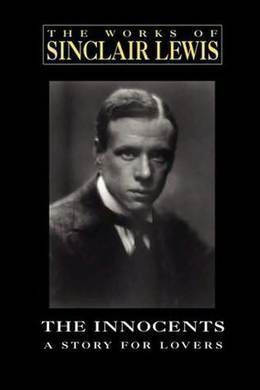
-
EPUB 185 KB
-
Kindle 228 KB
-
Support epubBooks by making a small $2.99 PayPal donation purchase.
Description
If this were a ponderous work of realism, such as the author has attempted to write, and will doubtless essay again, it would be perilous to dedicate it to the splendid assembly of young British writers, lest the critics search for Influences and Imitations. But since this is a flagrant excursion, a tale for people who still read Dickens and clip out spring poetry and love old people and children, it may safely confess the writer’s strident admiration for Compton Mackenzie, Hugh Walpole, Oliver Onions, D. H. Lawrence, J. D. Beresford, Gilbert Cannan, Patrick MacGill, and their peers, whose novels are the histories of our contemporaneous Golden Age. Nor may these be mentioned without a yet more enthusiastic tribute to their master and teacher (he probably abominates being called either a master or a teacher) – H. G. Wells
165 pages with a reading time of ~2.75 hours (41364 words), and first published in 1917. This DRM-Free edition published by epubBooks, 2011.
Community Reviews
There are currently no other reviews for this book.
Excerpt
Mr. and Mrs. Seth Appleby were almost old. They called each other “Father” and “Mother.” But frequently they were guilty of holding hands, or of cuddling together in corners, and Father was a person of stubborn youthfulness. For something over forty years Mother had been trying to make him stop smoking, yet every time her back was turned he would sneak out his amber cigarette-holder and puff a cheap cigarette, winking at the shocked crochet tidy on the patent rocker. Mother sniffed at him and said that he acted like a young smart Aleck, but he would merely grin in answer and coax her out for a walk. As they paraded, the sun shone through the fuzzy, silver hair that puffed out round Father’s crab-apple face, and an echo of delicate silver was on Mother’s rose-leaf cheeks. They were rustic as a meadow-ringed orchard, yet Father and Mother had been born in New York City, and there lived for more than sixty years. Father was a perfectly able clerk in Pilkings’s shoe-store on Sixth Avenue, and Pilkings was so much older than Father that he still called him, “Hey you, Seth!” and still gave him advice about handling lady customers. For three or four years, some ten years back, Father and Mr. Pilkings had displayed ill-feeling over the passing of the amiable elastic-sided Congress shoe. But that was practically forgotten, and Father began to feel fairly certain of his job. There are three sorts of native New-Yorkers: East Side Jews and Italians, who will own the city; the sons of families that are so rich that they swear off taxes; and the people, descendants of shopkeepers and clerks, who often look like New-Englanders, and always listen with timid admiration when New-Yorkers from Ohio or Minnesota or California give them information about the city. To this meek race, doing the city’s work and forgotten by the city they have built, belonged the Applebys. They lived in a brown and dusky flat, with a tortoise-shell tabby, and a canary, and a china hen which held their breakfast boiled eggs. Every Thursday Mother wrote to her daughter, who had married a prosperous and severely respectable druggist of Saserkopee, New York, and during the rest of her daytimes she swept and cooked and dusted, went shyly along the alien streets which had slipped into the cobblestoned village she had known as a girl, and came back to dust again and wait for Father’s nimble step on the four flights of stairs up to their flat. She was as used to loneliness as a hotel melancholiac; the people they had known had drifted away to far suburbs. In each other the Applebys found all life. In July, Father began his annual agitation for a vacation. Mr. Pilkings, of Pilkings & Son’s Standard Shoe Parlor, didn’t believe in vacations. He believed in staying home and saving money. So every year it was necessary for Father to develop a cough, not much of a cough, merely a small, polite noise, like a mouse begging pardon of an irate bee, yet enough to talk about and win him a two weeks’ leave. Every year he schemed for this leave, and almost ruined his throat by sniffing snuff to make him sneeze. Every year Mr. Pilkings said that he didn’t believe there was anything whatever the matter with Father and that, even if there was, he shouldn’t have a vacation. Every year Mother was frightened almost to death by apprehension that they wouldn’t be able to get away. Father laughed at her this July till his fluffy hair shook like a dog’s ears in fly-time. He pounded his fist on the prim center-table by which Mother had been solemnly reading the picture-captions in the Eternity Filmco’s Album of Funny Film Favorites. The statuettes of General Lafayette and Mozart on the false mantel shook with his lusty thumping. He roared till his voice filled the living-room and hollowly echoed in the porcelain sink in the kitchen. “Why,” he declaimed, “you poor little dried codfish, if it wasn’t for me you’d never have a vacation. You trust old dad to handle Pilkings. We’ll get away just as sure as God made little apples.” “You mustn’t use curse-words,” murmured Mother, undiscouraged by forty years of trying to reform Father’s vocabulary. “And it would be a just judgment on you for your high mightiness if you didn’t get a vacation, and I don’t believe Mr. Pilkings will give you one, either, and if it wa’n’t for–” “Why, I’ve got it right under my hat.” “Yes, you always think you know so much more–” Father rounded the table, stealthily and treacherously put his lips at her ear, and blew a tremendous “Zzzzzzzz,” which buzzed in her ear like a file on a saw-blade.
